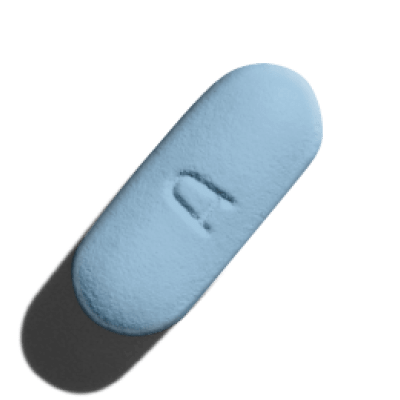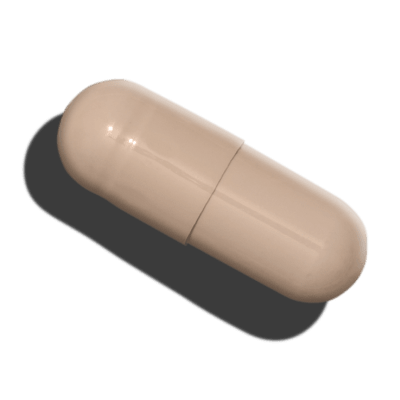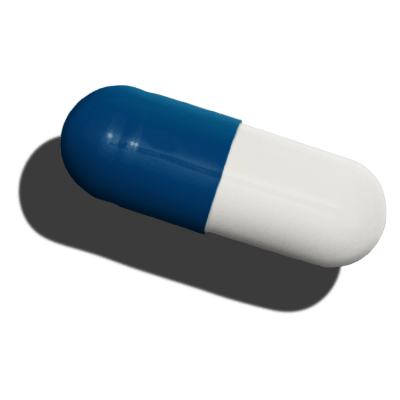Content
Seeking support for your mental health?
Wellbutrin Dosage Guide for Depression and Anxiety

Medication is one of the most effective ways to fight common mood disorders, and some medications are able to treat more than one.
Wellbutrin® is one of these medications — you may have heard about it as a beneficial pill for dealing with both anxiety and fighting depression.
Wellbutrin is an antidepressant medication that has secondary value in treating anxiety, but depending on what condition you have, Wellbutrin may not be prescribed in exactly the same way.
Content
Whether you’re predominantly an anxiety sufferer, a depression sufferer or are dealing with both, a healthcare professional may prescribe this medication differently to treat your symptoms.
Before we get into why this might happen, we want to lay out some facts about the mood disorders in question.
Depression 101
According to the National Institute of Mental Health (NIMH), depression is a mood disorder.
Depression is characterized by ongoing patterns of negative feelings — sad, empty and down feelings that affect your ability to function.
There are several types of depression.
A common form that affects people in the colder, drearier winter months is Seasonal Affective Disorder (SAD).
Depression over a long term is called persistent depressive disorder, and it can last two years or longer.
By comparison, major depression is shorter and is considered following a period of at least two weeks (but often significantly longer) of depression symptoms.
Depression can be triggered by biological, genetic, psychological and environmental factors, though this is mostly theory, as scientists still aren’t positive about what, exactly, causes depression.
What we do know is that depressive symptoms can include anger, exhaustion, irritability, reckless behavior, substance abuse and the loss of interest in day to day activities — not to mention suicidal thoughts.
talk to a psychiatry provider. it’s never been easier
Anxiety 101
By contrast, anxiety is a collection of mood disorders representing intense feelings of anxiety, unease, or panic, according to the National Institute of Mental Health.
Included under this umbrella are panic disorders. Anxiety sufferers may experience occasional panic attacks, and panic sufferers may experience anxiety.
Anxiety symptoms, like depression symptoms, must be felt for at least a few weeks for a diagnosis to be appropriate.
Symptoms of anxiety include fatigue, irritability, muscle tension, difficulty sleeping, restlessness, feeling on edge or wound-up, difficulty concentrating and uncontrollable worry.
Anxiety disorders are extremely common. More than 30 percent of American adults could be diagnosed with an anxiety disorder at some point in their lives — that’s nearly a third!
What is Wellbutrin?
Now that we know more about what Wellbutrin treats, we need to take a look at Wellbutrin itself.
Wellbutrin is a brand name version of an antidepressant called bupropion, which was approved by the FDA in 1985.
Bupropion is a dopamine-targeting medication called a norepinephrine and dopamine reuptake inhibitor (NDRI).
NDRIs prevent dopamine (the pleasure neurotransmitter) and norepinephrine (the stress neurotransmitter and hormone) from being reabsorbed by the brain, which in turn leaves a larger supply of both available to the brain for proper function.
Wellbutrin is available in two oral tablets, which are designed either as 12- or 24-hour extended release delivery systems.
Wellbutrin is FDA approved for depression, for seasonal affective disorder and also smoking cessation.
But off-label, it’s used to treat other conditions, including antidepressant-induced sexual dysfunction, Attention Deficit Hyperactivity Disorder (ADHD), bipolar-related depression, bipolar disorder, obesity and anxiety.
Typically, you’ll need at least two weeks of treatment of Wellbutrin before a sufficient supply builds up in your body to show results.
Common side effects of Wellbutrin include mostly mild issues like weight loss, constipation, excessive sweating, ringing in the ears, dry mouth, nausea, headache, drowsiness, loss of appetite, sore throat, uncontrollable shaking of body parts, vomiting, stomach pain, anxiety, frequent urination and changes to your sense of taste.
Rare but serious side effects include confusion, muscle or joint pain, hallucination, irrational fears, seizures and rapid heart beat. You should bring these to the attention of a healthcare professional immediately if you notice any of them.
You should also contact a healthcare professional if you experience adverse effects such as rash, fever, blisters, swelling hives, hoarseness, itching or difficulty swallowing or breathing.
Bupropion is available in several doses, and for depression treatment, there’s a fairly standard understanding of how much medication should be taken.
First, there are immediate-release bupropion tablets, which are available in strengths of 75mg and 100mg.
Extended/sustained-release versions of bupropion can contain 100mg, 150mg, 200mg, 300mg or 450mg of bupropion in a single dose per tablet. This may also vary based on the brand of medication you’re using — make sure to consult the label before taking any medication.
Typically, a starting dose of bupropion for depression starts around 150mg per day, and might go up to three times that. Doses may be adjusted after a few days or weeks at the discretion of your healthcare provider.
For anxiety, the dosage will likely be much smaller.
There’s not ample discussion on the appropriate daily dose for anxiety treatment, and it could be considered experimental at this point, given that anxiety treatment is off-label.
But some healthcare professionals suggest going with the “low and slow” approach, using about half the recommended depression doses as a starting point.
Based on your symptoms, health history, response to the medication and several other factors, your healthcare provider may adjust your dosage of bupropion over time.
Wellbutrin and Your Mental Health
Wellbutrin is like any other medication: used correctly, it has the potential to help reduce or eliminate the symptoms of the medical condition(s) it treats. And like any other medication, following the directions of your healthcare provider is key.
That’s why dosage is so important: an improper dose may have serious side effects, or cause major issues with the effectiveness of your treatment.
Ultimately, Wellbutrin may just be one of the elements of effective treatment for your mood disorders.
Others may include lifestyle changes or therapy — a healthcare provider will likely make recommendations for your individual needs, and it may include some or all of the options available for treatment.
You can’t and should never change a prescription on your own, but there are things you can do without a healthcare professional’s input to work on your mental health — like reading.
If you’re just learning about depression, we suggest learning about the types of therapy. If you’d like to continue exploring, you might want to check out our mental health resources guide.
Ready to talk to someone? Consider scheduling an online psychiatry evaluation today.
9 Sources
- Chris Aiken, M. D. (2021, January 19). 3 Myths About Bupropion. Psychiatric Times. https://www.psychiatrictimes.com/view/3-myths-about-bupropion.
- Huecker MR, Smiley A, Saadabadi A. Bupropion. [Updated 2021 Apr 19]. In: StatPearls [Internet]. Treasure Island (FL): StatPearls Publishing; 2021 Jan-. Available from: https://www.ncbi.nlm.nih.gov/books/NBK470212/.
- Trivedi, M. H., Rush, A. J., Carmody, T. J., Donahue, R. M., Bolden-Watson, C., Houser, T. L., & Metz, A. (2001). Do bupropion SR and sertraline differ in their effects on anxiety in depressed patients?. The Journal of clinical psychiatry, 62(10), 776–781. https://pubmed.ncbi.nlm.nih.gov/11816866/.
- U.S. National Library of Medicine. (n.d.). Sertraline: MedlinePlus Drug Information. MedlinePlus. https://medlineplus.gov/druginfo/meds/a697048.html.
- U.S. National Library of Medicine. (n.d.). Bupropion: MedlinePlus Drug Information. MedlinePlus. https://medlineplus.gov/druginfo/meds/a695033.html.
- Croft, H., Settle, E., Jr, Houser, T., Batey, S. R., Donahue, R. M., & Ascher, J. A. (1999). A placebo-controlled comparison of the antidepressant efficacy and effects on sexual functioning of sustained-release bupropion and sertraline. Clinical therapeutics, 21(4), 643–658. https://pubmed.ncbi.nlm.nih.gov/10363731/.
- Depression Basics. (n.d.). Retrieved January 08, 2021, from https://www.nimh.nih.gov/health/publications/depression/index.shtml.
- HIGHLIGHTS OF PRESCRIBING INFORMATION Wellbutrin. (n.d.). https://www.accessdata.fda.gov/drugsatfda_docs/label/2017/020358s060lbl.pdf.
- Bupropion (Wellbutrin). NAMI. (n.d.). https://www.nami.org/About-Mental-Illness/Treatments/Mental-Health-Medications/Types-of-Medication/Bupropion-(Wellbutrin).
Editorial Standards
Hims & Hers has strict sourcing guidelines to ensure our content is accurate and current. We rely on peer-reviewed studies, academic research institutions, and medical associations. We strive to use primary sources and refrain from using tertiary references. See a mistake? Let us know at blog@forhims.com!
This article is for informational purposes only and does not constitute medical advice. The information contained herein is not a substitute for and should never be relied upon for professional medical advice. Always talk to your doctor about the risks and benefits of any treatment. Learn more about our editorial standards here.
Vicky Davis, FNP
Dr. Vicky Davis is a board-certified Family Nurse Practitioner with over 20 years of experience in clinical practice, leadership and education.
Dr. Davis' expertise include direct patient care and many years working in clinical research to bring evidence-based care to patients and their families.
She is a Florida native who obtained her master’s degree from the University of Florida and completed her Doctor of Nursing Practice in 2020 from Chamberlain College of Nursing.
She is also an active member of the American Academy of Nurse Practitioners.




